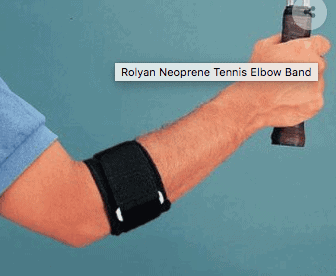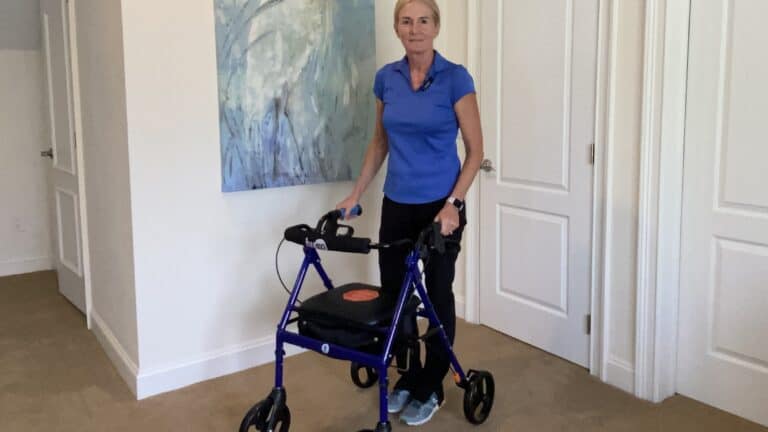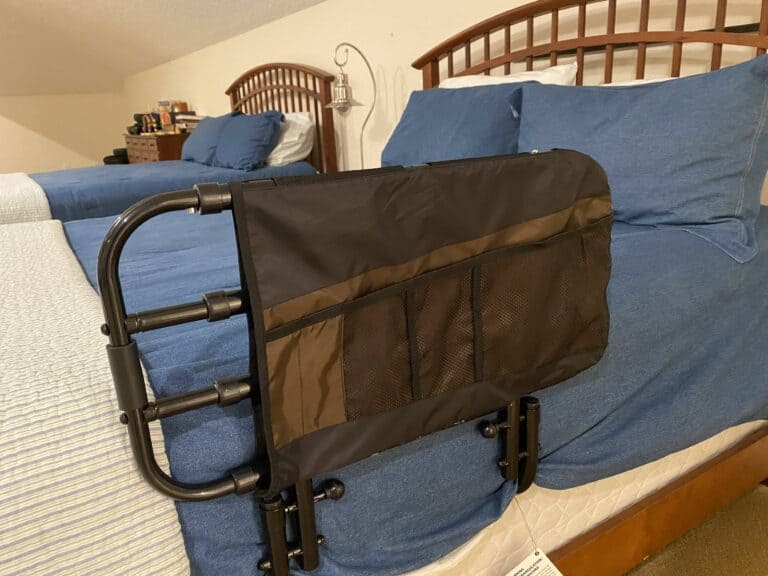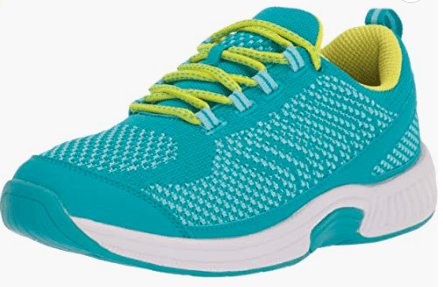7 Easy Tips To Help a Dementia Patient Drink More Water
Are you having difficulty getting your loved one with dementia to drink enough water?
You are not alone! Many caregivers struggle with this issue. Dehydration can cause dementia patients to become agitated and confused and can lead to serious health problems.
There are several things you can do to help people with dementia stay hydrated. Below I cover how to get a dementia patient to drink more water.
But first…
Warning: Be sure your loved one with dementia does not have a condition that requires reduced fluid intake such as congestive heart failure or diabetes.
Also, be sure they do not have difficulty swallowing such as coughing or choking when eating and drinking. If they do, ask their physician for a referral to speech therapy for a swallowing evaluation – swallowing difficulties can lead to serious issues such as aspiration and pneumonia.
This post contains affiliate links. As an Amazon Associate, I earn from qualifying purchases, at no extra cost to you.
My top 7 strategies for improving hydration in persons with dementia:
- Sip All Day
- Offer Other Fluids
- Model Good Hydration
- Make it Social
- Get a Special Cup
- Change up the Temperature
- Add More Fruits and Veggies to their diet
Now let’s take a deeper dive into each strategy so you can use them now to help your loved one with Alzheimer’s disease avoid dehydration.
If you would rather watch a video on this topic, click here
Tip 1: Sip Water All Day
Our bodies use water more efficiently if we drink small amounts of water throughout the day. Encourage the person with dementia to drink more frequently by setting the cup out where they can see it.
Try giving frequent reminders to take a sip. Verbal reminders are good, but visual reminders are even better.
You can post reminder notes throughout the house. Studies have shown that visual cues are very effective for people with dementia.
Tip 2: Offer other fluids besides water
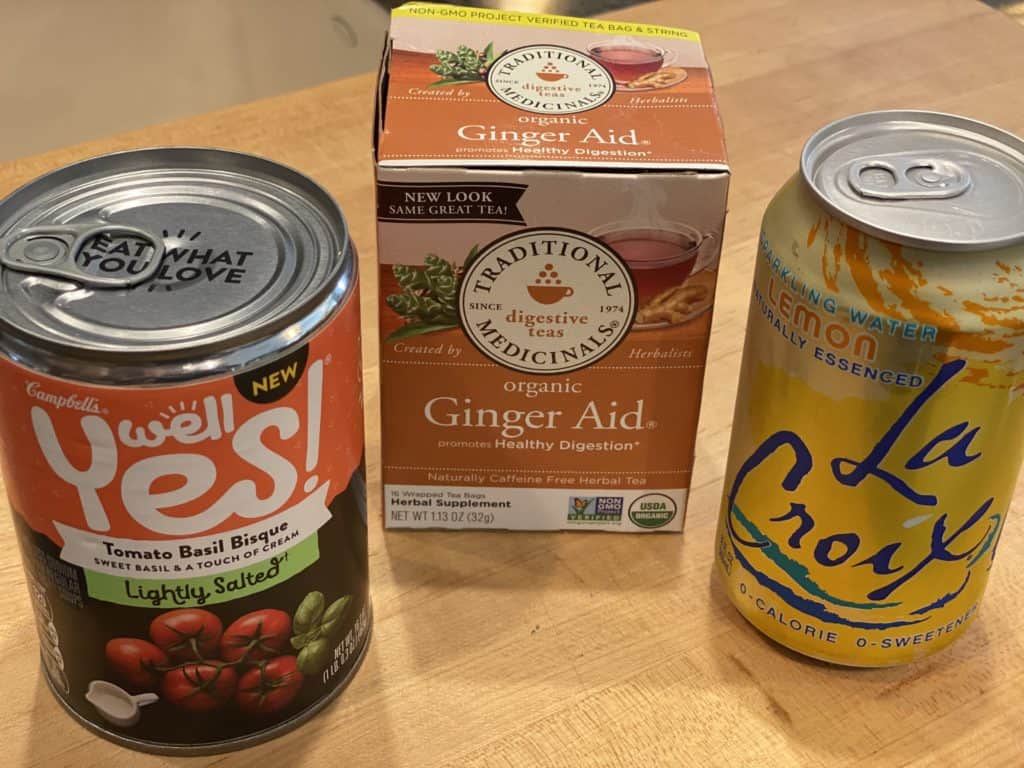
Water should be at least 50% of fluid intake for most people, but popsicles, jello, soup, fruit juice, and sports drinks can be great sources of hydration and may taste better for your loved one.
There are also flavor packets you can add to water that can help boost flavor.
And don’t forget about smoothies – they are a great way to boost hydration, get more fruits and vegetables, AND drinking one feels like a treat!
Avoid caffeinated beverages which can lead to dehydration.
Always avoid alcohol for individuals with cognitive decline. Not only does alcohol lead to dehydration, but it can also interfere with prescription medications and cause confusion and agitation.
Tip 3: Model good hydration
Are YOU drinking enough water? Many caregivers are not getting enough fluids themselves.
Do you find that you are getting short-tempered or notice a slight headache? Then all of a sudden, you realize that you are thirsty. You may already be dehydrated by the time you realize you are thirsty.
Be a good model and sip some water alongside your loved one with dementia. It is a good, healthy habit for both of you.
Tip 4: Make it social
Take drinking breaks where you sit and enjoy time with your loved one. Have coffee, tea, or a small snack with a drink. It makes hydrating more enjoyable and is a chance to connect with your loved one.
All too often we get bogged down in the endless tasks of caregiving and forget to appreciate the relationship that is at the core of our caregiving.
That person we are caring for is our husband, wife, mom, or dad – taking some time out to focus on a fun activity can make hydrating less of a chore.
Tip 5: Get a special cup
Using a special cup can make staying hydrated easier for someone with dementia.
Choose a cup with a sports team logo or in a color that they love. Using a special cup will draw attention and help remind them to drink throughout the day.
Does your loved one with dementia have arthritis, weak grip strength; arm, shoulder, or neck movement restrictions, or poor motor skills? If so, they may have a difficult time actually getting the cup to their mouth to even drink water.
I have included links to some really great cups below that can help overcome some of these challenges and make staying hydrated easier.
Drink wear for special conditions
This tumbler with an integrated straw may be helpful for individuals with limited neck or shoulder range of motion:

Spill-Proof Tumbler with Straw
This tumbler eliminates spills and has an integrated straw to make it easier for people with limited shoulder, elbow, or neck range of motion to drink.
It also features an easy-grip sleeve which can help keep the tumbler from slipping when there is condensation present.
This tumbler with an integrated handle could work well for those with reduced grip strength:

Tumbler with built-in handle
Drinking from a standard cup can be difficult for those with reduced grip strength or dexterity problems.
This tumbler has a built-in handle to make it easier to maintain control in spite of reduced hand function.
A weighted cup can provide stability for an individual with tremors to drink without spilling:

Weighted Drinking Cup
This weighted cup helps to provide stability and prevent spills for those with hand tremors.
The cup has a 10 oz. capacity and can be used with hot or cold beverages.
This sports team-themed Tervis tumbler may appeal to the sports fan and encourage drinking water:

Sports Themed Tervis Tumbler
For those die-hard sports fans, a tumbler from their favorite sports team might be just the thing to encourage hydrating.
Tervis tumblers are durable, well-made, and dishwasher-safe.
Tip 6: Change up the temperature
Maybe your loved one with Alzheimer’s disease has dental sensitivities or just prefers something warm. Or maybe it’s the middle of winter and something warm would be comforting. Try tea or soup for delicious and flavorful options.
During the hot summer months, try offering smoothies, popsicles, or sports drinks as a great hydration solution.
Offering something cool and refreshing might be just the change it takes to get your loved one with dementia to drink more fluids.
Tip 7: Increase fruit and vegetable intake
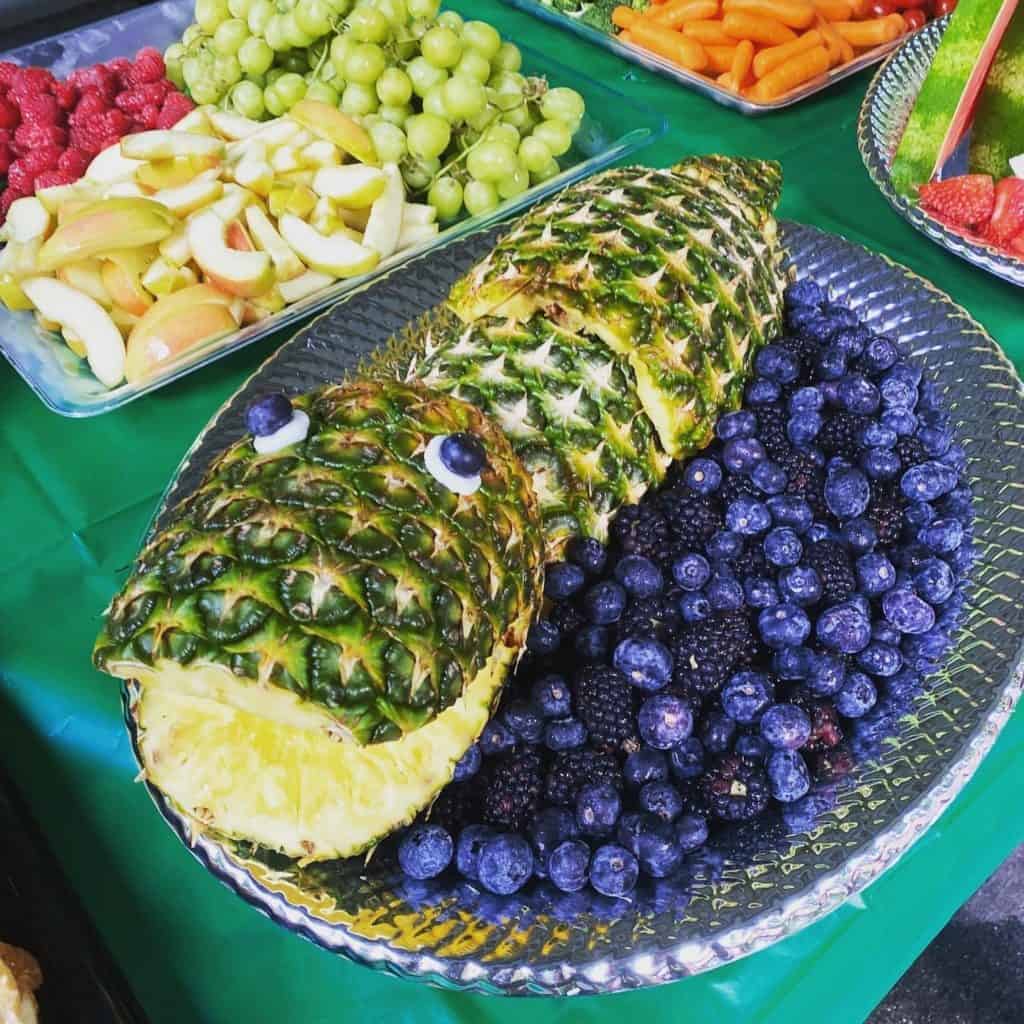
Many foods have high water content like cucumber, watermelon, and berries. Plus, as an added bonus they are loaded with micronutrients that we all need to stay healthy.
If your loved one doesn’t like fruits and vegetables, try mixing a handful of kale or spinach into a fruit smoothie. A small handful of vegetables mixed into a fruit smoothie won’t affect the taste.
Alternatively, you could top yogurt or ice cream with fresh berries.
Cucumber, zucchini, and sliced carrots are great for dipping into salsa, hummus, or ranch dip. The possibilities for increasing hydration with foods are endless.
Why is hydration so important?
All the cells in our bodies need water to function. Low hydration can cause fatigue, confusion, agitation, constipation, and even urinary urgency and urinary tract infections.
Dehydration can also cause dementia patients to become more confused and agitated. In fact, dehydration is one of the most common causes of hospitalization in persons with dementia.
Studies have shown that good hydration can prevent chronic diseases ranging from heart and lung disease to bowel and bladder conditions.
What Causes Dehydration?
There are many reasons a dementia patient may become dehydrated. dementia patients may have trouble remembering to drink, have difficulty swallowing, or be on certain medications that cause increased urination or decreased sense of thirst.
Certain dementia behaviors can also lead to dehydration. For example, if your loved one is pacing or wandering, they may not realize they are thirsty.
Mobility challenges or other movement problems might make it difficult for people with dementia to walk to the sink and fill a cup.
Cognitive impairment can make it difficult to recognize thirst or express thirst.
What are the Signs of Dehydration?
There are several warning signs that can signal dehydration. Some of these signs include:
decreased urine output
dark yellow urine
dry mouth
increased confusion or agitation
fatigue
headache
dizziness
Conclusion
We have covered several ways you can help someone with dementia stay hydrated. There is no one-size-fits-all solution, so try a few of these tips and see what works best for your loved one.
If you are concerned about dehydration, please contact the patient’s physician.
In addition to hydration, there are many daily habits that can support good health for dementia patients and their caregivers. Read more about healthy habits here.
This blog post is for informational purposes only and is not intended to be a substitute for medical advice.
References
Manz, F., & Wentz, A. (2005). The Importance of Good Hydration for the Prevention of Chronic Diseases, Nutrition Reviews, Volume 63, Issue suppl_1, S2–S5, https://doi.org/10.1111/j.1753-4887.2005.tb00150.x
Wang, W., & Lu, Z. (2022). Influences of Physical Environmental Cues on People With Dementia: A Scoping Review. Journal of Applied Gerontology, 41(4), 1209–1221. https://doi.org/10.1177/07334648211050376

